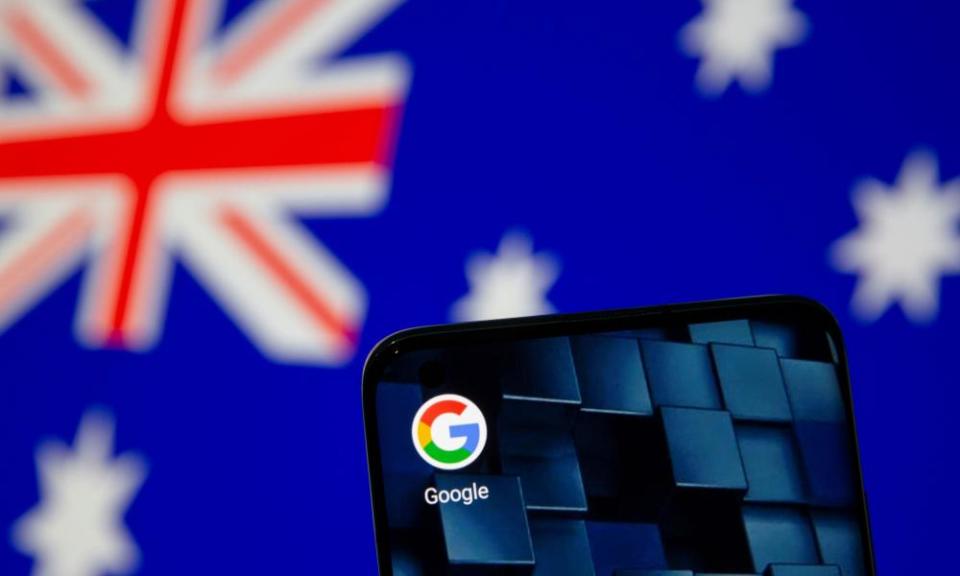Ignore threats to shut search in Australia and force Google to pay, small business groups say

Australia should ignore threats from Google to shut down its search service in the country and press ahead with a code forcing the technology group to pay for news, the Council of Small Business Organisations Australia (Cosboa) says.
Cosboa chief executive Peter Strong said Google turning off search in Australia would hurt both small businesses trying to promote themselves and consumers trying to find products.
However, Google needed “strong and stringent” regulation due to its monopoly on internet search, he said.
Last week Google’s Australian managing director, Mel Silva, told a Senate inquiry the company would shut down its flagship search service in Australia if the government introduced a law that would require it to pay for news content it uses on its website.
Related: 'Inevitable' Google and Facebook will pay for Australian news, treasurer says
Legislation before parliament would introduce a bargaining code forcing digital platforms such as Google and Facebook to negotiate with media companies over payment for news content. If they were unable to agree, they would be sent to an arbitrator who would pick one of the offers made by the sides.
Silva told parliament the code, which was developed by competition tsar Rod Sims, would cause “unmanageable financial and operational risk” and that forcing Google to pay for news content would set a dangerous precedent.
Strong said the threat highlighted the problem of dealing with one dominant market player – something his members had experience with from dealing with supermarkets and big suppliers.
“They’re not evil, they’re just too big,” he said.
“We will find ways around this, but some businesses will suffer from it.
“What it has highlighted is that if we do have to have a dominant player then that player must respond to regulation and that regulation must be fairly strong and stringent.”
He said small business had long had problems with the way Google’s search algorithms worked.
“We were getting stories from businesses that were on the front page one day and then the next day they weren’t,” he said.
He said that despite Google mounting some “quite sound” arguments against the code, Cosboa supported it.
“Good on Rod Sims for doing this,” he said.
Former Australian Competition and Consumer Commission chairman Allan Fels, who is now the chairman of the Public Interest Journalism Initiative, said he was sceptical about Google’s threat to pull search from Australia.
“It’s frequently the case that before ACCC decisions companies that are affected threaten closures, shutdowns, cuts, job losses – but then don’t do it,” he said.
“Whether the digital platforms are different remains to be seen.”
He said the code had already been amended to take into account concerns expressed by the tech companies.
“One supposes that very high in the Google global organisation they have decided to put more pressure on Australia,” he said.
He also dismissed the US government’s contention that the code could breach a free trade agreement between the two countries.
“It’s dubious that the proposal is in contravention of the US-Australia Free Trade Agreement,” he said.
“The code is best understood as a domestic policy aimed at removing gross bargaining imbalances.
“It is a conventional use of the Competition Act.”

 Yahoo Movies
Yahoo Movies 